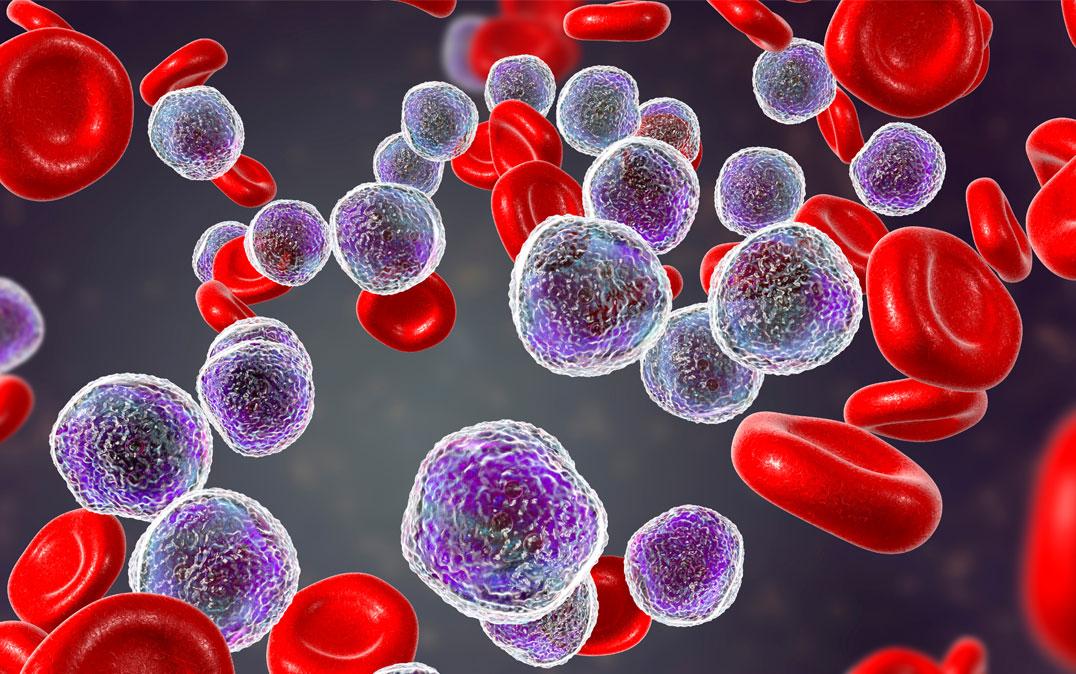Research News
The Role of Lipids in Blood Cancer - New Insights into Uncharted Territory
 Image by Kateryna Kon/Shutterstock
Image by Kateryna Kon/ShutterstockResearchers from the University of Tsukuba identify an enzyme called ELOVL6, important in lipid metabolism, as unexpectedly playing a role in the spread of leukemia
Tsukuba, Japan—Cells contain diverse populations of molecules called lipids, which are organic fatty compounds. Lipid metabolism, the synthesis and breakdown of these lipids, plays key roles in regulating the composition and functions of cells and cell membranes. An enzyme known as ELOVL6 elongates chains of fatty acids and is important in several cellular metabolic processes. However, the relationship between lipid metabolism and blood development and disorders is an area of research with minimal activity so far. Now, a team from the University of Tsukuba, aiming to fill that knowledge gap, has shown that ELOVL6 plays a significant role in the development of acute myeloid leukemia (AML), a type of blood cancer, through a pathway that controls cell movement. They also showed that high ELOVL6 levels are linked to shorter survival of leukemia patients.
The team observed that a deletion of ELOVL6 in bone marrow stem cells, which are responsible for producing all types of blood cells, altered cellular lipid contents and inhibited engraftment in mice—a process where transplanted stem cells travel through the blood to the bone marrow. Importantly, the loss of ELOVL6 also prevented the development of leukemia in a mouse model. Analysis of gene expression profiles showed that the cells lacking ELOVL6 had alterations to genes involved in cytoskeletal remodeling and chemotaxis—machinery involved in cell movement. Detailed molecular studies confirmed that ELOVL6 loss impaired cytoskeletal remodeling and chemotaxis, likely through dysfunction of PI3K and Rac1, which are vital cellular regulatory molecules.
"Taken together, this indicates that relatively small changes to the cell membrane lipid content can have unforeseen and drastic effects on the development of blood cancers," explains senior author Professor Shigeru Chiba. Interestingly, the group noted that though blood production and AML pathology are closely related, ELOVL6 loss did not affect normal blood production or function.
The group went on to use data available from online databases to show a link between high levels of ELOVL6 and a worse overall survival from AML. "ELOVL6 and its downstream pathways had never before been considered as potential targets for leukemia treatment, as this link between lipids and blood function was unexplored," explains Professor Chiba. Now, however, this study reveals that ELOVL6 and its associated pathways are very promising targets for the development of novel therapies for leukemia, and is expected to springboard further research into the relationships between lipid metabolism and cancer.
###
This work was supported by Grants-in-Aid for Scientific Research (KAKENHI: 20646591 and 20K08724 to TK and 18968151 to HN) from the Ministry of Education, Culture, Sports, Science and Technology of Japan; the SENSHIN Medical Research Foundation to TK; the Takeda Science Foundation to HN; AMED (Grant Number JP 211m0203010 to TK); and the Project for Cancer Research and Therapeutic Evolution (P-CREATE) from AMED to SC.
Original Paper
- Title of original paper:
- The fatty acid elongase Elovl6 is crucial for hematopoietic stem cell engraftment and leukemia propagation.
- Journal:
- Leukemia
- DOI:
- 10.1038/s41375-023-01842-y
Correspondence
Professor CHIBA ShigeruFaculty of Medicine, University of Tsukuba



